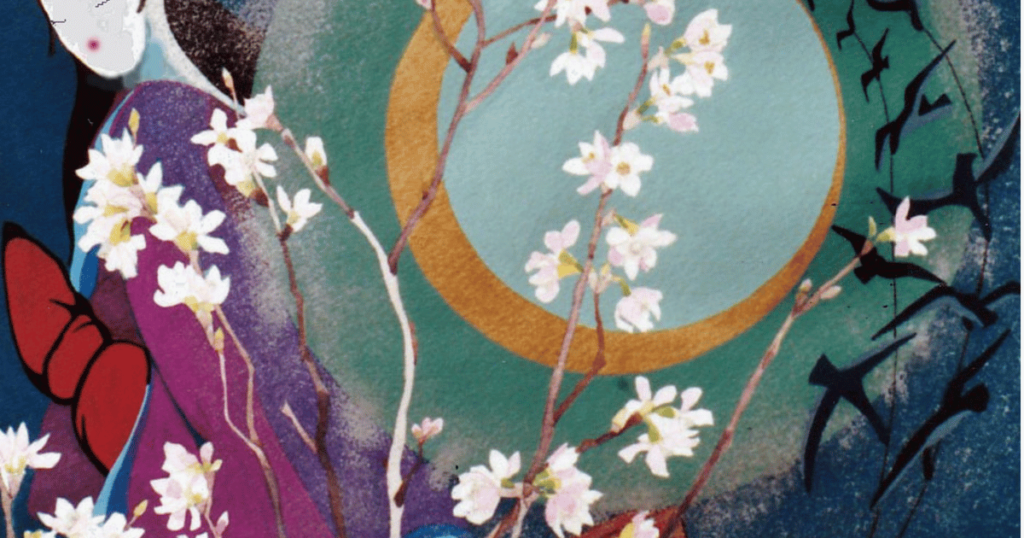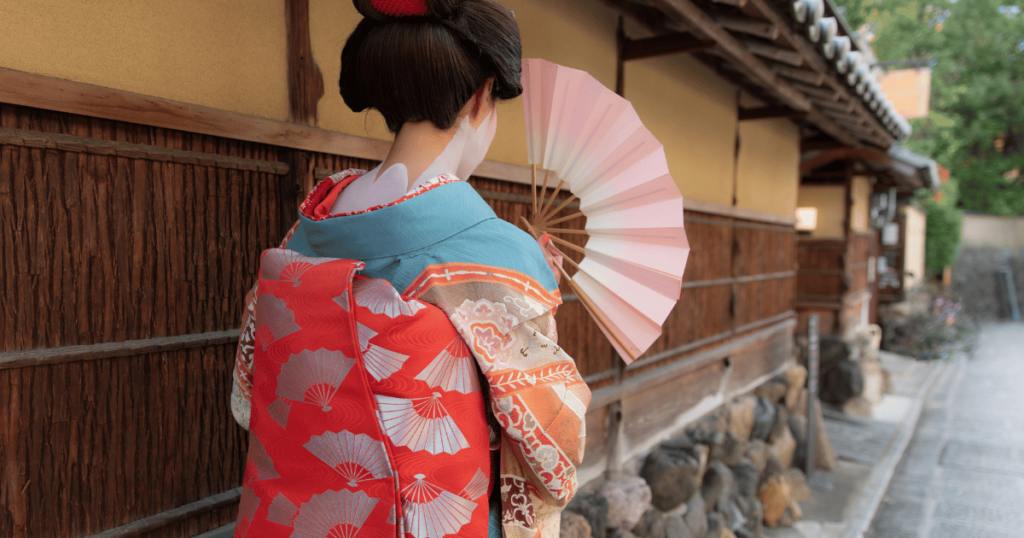
You seem thrilled to meet again, though I cannot be sure. Nothing’s certain here regarding feelings; faces and eyes are no gage. You’re busy reading the air as we greet each other formally; we bow deeply to show utter respect, you are tipping forward smoothly from the high block heels of your sandals—geta; me, heavily and low-slung from the earth.
You have never left these easterly lands, refusing to burden your parents with worry over dangerous contamination from distant cultures, golden lands of dollar and Deutsch mark, free expression and individuality.
Did you put aside feelings of curiosity, a longing for exotic adventure? Or did they never surface because the pool was too deep or shallow? It seems impossible to measure its depth because there is no expression or dialogue designed for such things while swimming in this monoculture—only one language, heart, and pool.
You have come of age and yet been slow to sample life, preferring the local festivals at shrines with their red gates to wish for good health and prosperity. You wade through cool water in your summer kimono to ring the rope bell, clapping your hands twice to ask for benefit. You prefer your part-time job at the noodle shop and your miniscule apartment like a cupboard where you live on your bed because there is no floor space for a table and chairs or even to kneel on ‘earth,’ your most natural posture. You worship and pledge yourself to your god-like teachers of traditional kimono dancing and shamisen (Japanese banjo), vowing to care for them until they die.
To loud applause and broad smiles, we enter the French Brasserie in a small Kyoto basement shopping centre, the subway nearby, and the leading national Banks above. You are geisha, gentle entertainer of professional men, and I, honorary foreigner, ungentle educator of apprentices to western ways.
Your full kimono and wooden clogs contrast with my denim blue and red Birkenstocks; your perfectly oval white china face with my irregular round pink; your full lips sculpted in carmine with my narrow soft plants of flesh.
I ask you if you would like to sit opposite or beside me. You lower your eyes, looking to the left, unable to choose, baffled by such a request. I stride forward and establish the ‘opposite’ seating plan—my choice because I’m not reading the air, just breathing it, gratis.
The menu comes in French for me and in Japanese-French for you. We talk about it in Japanese-English. A Japanese monk, some say the only original genius of Japan, created a system of signs which renders all foreign words within the Japanese sound system called katakana. Consequently, you are shocked at my non-katakana pronunciation of French dish names. Smiling, you beg me to be the next genius to bring this marvellous system up to date, palms together in gassho—Japanese namaste.
You want to try Greek fish ‘marinated.’ You know what the term means, but how could you ever be prepared for the taste? You place a large, shiny silver fork carefully, uneasily in your red art mouth and avert your eyes downwards again to read. There! There is no expression, no remote signal of that space between translation and human feeling or reactions. I wait many seconds for your verdict as you read the taste, the texture, me watching you suspended, illiterate.
Yes, you know the word ‘marinated,’ but imagination is based on varied experience, width and flexibility. Japanese foods are deliberately chaste in flavour: you say white rice is your favourite food when it is utterly tasteless to me. Your literature is incomprehensible to me and mine to you, and yet we share the same air.
I eat my liver paté, spreading it skilfully on roughly torn French bread, sipping my red wine from a tall stem while you leaf through your catalogues, trying to file this alien taste of Greece. Then suddenly, the darkness of your eyes’ sky tempers my pale blue ocean, and you scream, “oishiiiiii!”—‘delicious!’ You have finished the book, and the ending is joyful.
I wonder if I can apply to study on an air-reading course, but you doubt it.
We leave to more applause and deep bows. I want to touch you somehow, but you have measured the distance between us expertly, so I cannot reach you. I feel you reading me and know we will again be intimate on electronic pages, you from your room on an island bed and me from my spacious campus office.

